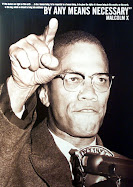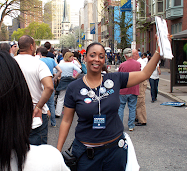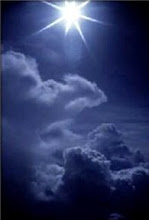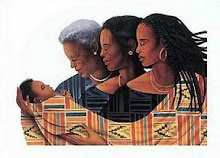Amiri Baraka - Why is We Americans
Amiri Baraka - Money
Amiri Baraka, born Everett LeRoi Jones in 1934, in Newark, New Jersey, USA, is the author of over 40 books of essays, poems, drama, and music history and criticism, a poet icon and revolutionary political activist who has recited poetry and lectured on cultural and political issues extensively in the USA, the Caribbean, Africa, and Europe. He attended Rutgers University and Howard University, spent three years in the U.S. Air Force, and returned to New York City to attend Columbia University and the New School for Social Research. Baraka has become most known for his strident social criticism, often writing in an incendiary style that has made it difficult for some audiences and critics to respond with objectivity to his works.
With influences on his work ranging from musical orishas such as Ornette Coleman, John Coltrane, Thelonius Monk, and Sun Ra to the Cuban Revolution, Malcolm X and world revolutionary movements, Baraka is renowned as the founder of the Black Arts Movement in Harlem in the 1960s that became, though short-lived, the virtual blueprint for a new American theater aesthetics. The movement and his published and performance work, such as the signature study on African-American music, Blues People (1963) and the play Dutchman (1963) practically seeded “the cultural corollary to black nationalism” of that revolutionary American milieu.
Baraka's play Dutchman, in which a middle-class black man and white woman engage in a deep and raw conversation about sex and race on a subway, won the Village Voice Obie Award in 1964. His innovative use of symbolism and his commentary on the status of blacks in America have made Dutchman an often anthologized and performed play. Baraka's other plays include The Baptism (1964), The Toilet (1964), The Slave (1964), The Death of Malcolm X (1969), and The Motion History (1977).
Other titles range from Selected Poetry of Amiri Baraka/LeRoi Jones (1979), to The Music (1987), a fascinating collection of poems and monographs on Jazz and Blues authored by Baraka and his wife and poet Amina, and his boldly sortied essays, The Essence of Reparations (2003).
Newark native AMIRI BARAKA was already an acclaimed poet and Obie Award-winning playwright in 1965 when Malcom X was assassinated. His move in the aftermath from Greenwich Village to Harlem was far more than a symbolic gesture. It marked his departure from the aesthetics and politics of the Beat generation, of which he’d become an integral member, to the forming of the Black Arts Movement—the major force in shaping the multiculturalism that transformed the arts and arts education during the latter half of the twentieth century. An internationally recognized poet, dramatist, essayist and musical historian, Baraka has secured a place in his hometown that is unique among artists of his stature. He has been committed to remaining actively engaged in the life of his community, devoting decades to supporting Newark’s artistic, cultural, social and political life. The author of 17 volumes of poetry that include Somebody Blew Up America (2003) and Beginnings and Other Poems (2003), more than twenty plays, seven volumes of nonfiction and a novel, Baraka is the recipient of fellowships from the Guggenheim and Rockefeller foundations and the Langston Hughes Award.
He has been the subject of numerous documentary films including Mario Van Peeble's Poetic License for The Sundance Channel and St. Clair Bourne's In Motion: Amiri Baraka. He has also appeared in dozens of films including, most recently, M.K. Asante, Jr's award-winning documentary The Black Candle.
The Essence of Reparations is Baraka’s first published collection of essays in book form radically exploring what is sure to become a twenty-first century watershed movement of Black peoples to the interrelated issues of racism, national oppression, colonialism, neo-colonialism, self-determination and national and human liberation, which he has long been addressing creatively and critically. It has been said that Amiri Baraka is committed to social justice like no other American writer. He has taught at Yale, Columbia, and the State University of New York at Stony Brook.
Somebody Blew Up America & Other Poems is Baraka’s first collection of poems published in the Caribbean and includes the title poem that has headlined him in the media in ways rare to poets and authors. The recital of the poem “that mattered” engaged the poet warrior in a battle royal with the very governor of New Jersey and with a legion of detractors demanding his resignation as the state’s Poet Laureate because of Somebody Blew Up America’s provocatively poetic inquiry (in a few lines of the poem) about who knew beforehand about the New York City World Trade Center bombings in 2001.
Amiri Baraka "Somebody Blew Up America"
The poem’s own detonation caused the author’s photo and words to be splashed across the pages of New York’s Amsterdam News and the New York Times and to be featured on CNN--to name a few US city, state and national and international media.
Baraka lives in Newark with his wife and author Amina Baraka; they have five children and head up the word-music ensemble, Blue Ark: The Word Ship and co-direct Kimako’s Blues People, the “artspace” housed in their theater basement for some fifteen years.
His awards and honors include an Obie, the American Academy of Arts & Letters award, the James Weldon Johnson Medal for contributions to the arts, Rockefeller Foundation and National Endowment for the Arts grants, Professor Emeritus at the State university of New York at Stony Brook, and the Poet Laureate of New Jersey.
In Memory of Radio
Who has ever stopped to think of the divinity of Lamont Cranston?
(Only jack Kerouac, that I know of: & me.
The rest of you probably had on WCBS and Kate Smith,
Or something equally unattractive.)
What can I say?
It is better to haved loved and lost
Than to put linoleum in your living rooms?
Am I a sage or something?
Mandrake's hypnotic gesture of the week?
(Remember, I do not have the healing powers of Oral Roberts...
I cannot, like F. J. Sheen, tell you how to get saved & rich!
I cannot even order you to the gaschamber satori like Hitler or Goddy Knight)
& love is an evil word.
Turn it backwards/see, see what I mean?
An evol word. & besides
who understands it?
I certainly wouldn't like to go out on that kind of limb.
Saturday mornings we listened to the Red Lantern & his undersea folk.
At 11, Let's Pretend
& we did
& I, the poet, still do. Thank God!
What was it he used to say (after the transformation when he was safe
& invisible & the unbelievers couldn't throw stones?) "Heh, heh, heh.
Who knows what evil lurks in the hearts of men? The Shadow knows."
O, yes he does
O, yes he does
An evil word it is,
This Love.
Ka'Ba
"A closed window looks down
on a dirty courtyard, and Black people
call across or scream across or walk across
defying physics in the stream of their will.
Our world is full of sound
Our world is more lovely than anyone's
tho we suffer, and kill each other
and sometimes fail to walk the air.
We are beautiful people
With African imaginations
full of masks and dances and swelling chants
with African eyes, and noses, and arms
tho we sprawl in gray chains in a place
full of winters, when what we want is sun.
We have been captured,
and we labor to make our getaway, into
the ancient image; into a new
Correspondence with ourselves
and our Black family. We need magic
now we need the spells, to raise up
return, destroy,and create. What will be
the sacred word?
Wise I
WHYS (Nobody Knows
The Trouble I Seen)
Traditional
If you ever find
yourself, some where
lost and surrounded
by enemies
who won't let you
speak in your own language
who destroy your statues
& instruments, who ban
your omm bomm ba boom
then you are in trouble
deep trouble
they ban your
own boom ba boom
you in deep deep
trouble
humph!
probably take you several hundred years
to get
out!
Amiri Baraka "Obama Poem"
Amiri Baraka "Why's/Wise"
Ode to Obama: Amiri Baraka
Beautiful Black Women by Amiri Baraka
Wednesday, February 22, 2012
Subscribe to:
Comments (Atom)













































